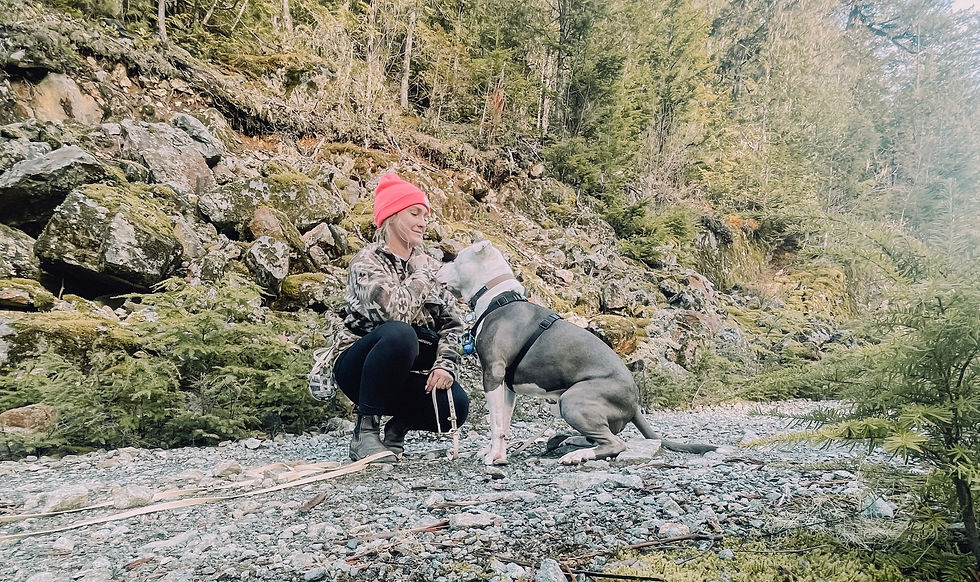The New Age of Dog Training: Taking a Holistic Approach
- Hilary Webster

- Nov 2, 2023
- 2 min read
There is something that I do whenever I meet a new client and their dog, I look at the dog from a holistic standpoint, this is absolutely critical. Keep reading to find out what I mean.

Firstly, it's important to consider this definition of behaviour: the way in which one acts or conducts themselves.
This means that behaviour is the visible actions we can see our dog taking such as: barking, lunging, jumping up on guests, pulling on the leash, etc. All of these behaviours, have underlying motivation (the reason or reasons for acting or behaving in a particular way).
Clients and I often talk about the fact that it is much more important to consider the motivation than the behaviour. This is because if we don't address the motivating factor, then we aren't going to change the behaviour, especially for the long haul. For example, your dog is afraid of other dogs and is barking and lunging on the leash. If we do not alleviate the fear, we will not alleviate the barking and lunging. This is the same for all behaviour challenges.
It is also VITAL for your dog trainer to consider factors like pain and illness that may be contributing to overall behaviour. A recent study shows a very high percentage of behaviour challenges have a pain component. Dogs are very stoic and it may be difficult to diagnose but it's critical to get a thorough examination from a veterinarian or a specialist to rule out pain. Of course age, breed, behaviour history, health history, and observation would lead your behaviour professional to recommend such an exam.
I encourage you to dig a little deeper to consider that not everything is as it seems, especially with our dogs!




Comments